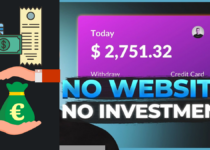When a Discount is More Than Just a Deal! Empowerment or Trap?
I was never an audiobook person.
The idea of audiobooks felt almost wrong to me. I loved the smell of paper, the weight of a book, underlining a line I wanted to remember forever or difficult words. Reading was quiet and intentional.
Then one day, after a routine Google Pay transaction, I received a coupon that said:
“3 months of Audible, free.”
It felt like a gift I hadn’t asked for. I claimed it, downloaded my first book, pressed play and in no time, fell asleep. My first listens were like doses of melatonin. I replayed chapters again and again.
But those coupons kept coming through Zomato, Swiggy, and UPI transactions and kept adding my Audible credits. I tried listening again and again. Slowly, it started to click.
I began listening during evening walks, while folding clothes, cooking, or just lying on the bed after an exhausting day. One book became two, then three. Without realizing it, I had gone from “audiobooks are soulless” to “I like listening to audiobooks.”
It wasn’t motivation that made this happen. It was a nudge. And that’s the thing about coupons, they’re more than discounts. They’re habit incubators.
However, Not All Nudges Are Equal
The same “Rewards” tab that gave me Audible also started showing me other offers:
♠️ “Play RummyCircle and get ₹200 free.”
🏏 “Dream11: 100% joining bonus!”
🔮 “AstroTalk consultations for ₹1.”
At first, I ignored them. But one incident at work made me think harder about what these so-called rewards are doing to people.
At one of my earlier jobs, a junior colleague played Dream11 almost every day. He wasn’t playing blindly. He followed a Telegram group that posted predictions and “strategies” for cricket matches.
One day, he won ₹25,000.
The office erupted. People laughed and clapped, telling me, “Look, he made almost his monthly salary in one day. How does that feel?”
I didn’t really know what to say.
He had told me he made ~ ₹400 most days on the app , enough to cover petrol expenses for his bike. That sentence stayed with me. On one hand, I understood that Life in India is hard. Petrol is expensive. Salaries often don’t keep pace with the rising costs. For a married man with a family, this extra money was for survival, not luxury.
But on the other hand, I knew not everyone is that careful. I knew how easily “just petrol money” could become an everyday gambling habit. And I knew that behind one winner’s story were countless quiet losses no one talks about.
The Business Logic vs the Human Cost
Why do Google Pay, Swiggy, and other platforms promote betting apps and pseudo-astrology services alongside useful tools like Audible or Grammarly?
Simple:
📌Betting apps pay huge commissions for every new user acquired.
📌Their revenue model relies on repeated play. The longer you stay, the more you lose over time.
📌They market through “quick wins” and FOMO, knowing most players won’t quit after winning once.
📌It’s the same psychology casinos use. Except here, it’s on your phone, 24/7, with push notifications telling you “Don’t miss out!”
📌Educational tools like Audible or Duolingo also use free trials to build habits, but the habits they build can improve your skills, broaden your mind, and add long-term value to your life.
❓Betting apps? They’re designed to keep you in a loop of dopamine hits and losses disguised as fun.
When Coupons Become Consumerism Traps
This is where the bigger problem comes in. Not all coupons are about value. Many are about increasing consumerism or getting you to spend time, money, and attention on things you didn’t need.
Think:
🆓 “Buy 1 get 1 free” pizza deals when you weren’t planning to eat pizza.
🛒 “Extra 20% off today only!” when you don’t need the item.
🎲 Free credits for betting lure you into risky behavior.
Every click, every “just try once,” is designed to make you stay longer, spend more, and keep coming back, even if it’s not in your best interest.
So, Which Coupons Deserve Our Attention?
I’m not here to tell anyone how to live. My Dream11 colleague made his choice, and maybe for him, it did make life easier. But I’ve seen enough to know that for many, it’s a slippery slope.
Here’s how I now look at “freebies”:
🪴Good Nudges
• Give you skills (Audible, Duolingo)
• Add to your life without draining something else
• Can be integrated into a healthy routine
• Make you feel better in the long term
📉 Bad Nudges
• Encourage addictive, high-risk behavior (betting apps, astrology services)
• Consume time without adding real value
• Depend on you “losing” for them to make money
• Make you feel worse in the long term
The Question We Should Be Asking
If a free Audible coupon could turn me into a lifelong audiobook listener, what kind of listener does a free betting coupon create? It’s time we demand more from the platforms we trust and the authorities who let this happen.
More educational rewards. More creative tools. More resources that push us forward, not sideways or backward.
Because coupons are not just marketing gimmicks. They’re seeds for habits. And the seeds we plant now will shape the habits and futures of millions of young people in India.
I still listen to audiobooks almost daily.
And every time I scroll past a betting coupon in my rewards tab, I can’t help but wonder what if that space had offered someone else their first book instead?
Maybe they’d be walking down a different path right now. What do you think?


